√完了しました! freedom summer voting drive 128978-Freedom summer voting drive
As a credit union member, you have a say in how Freedom Credit Union is run and can vote for the Board of Directors each year Due to the ongoing restrictions on public gatherings, we are once again adapting the format of our Annual Meeting and using a driveup voting process We invite you to participate Wednesday, April 21, 21 430–545 PMOur efforts echoed the 1964 Freedom Summer voting rights drive that precipitated the passage of the 1965 Voting Rights Act This month, we launched Freedom Fall to continue in the Black radicalThese murders shocked Americans as news reports of these cold blooded killings circulated throughout the nation The men had been ambushed by the Ku Klux Klan in retaliation for their participation
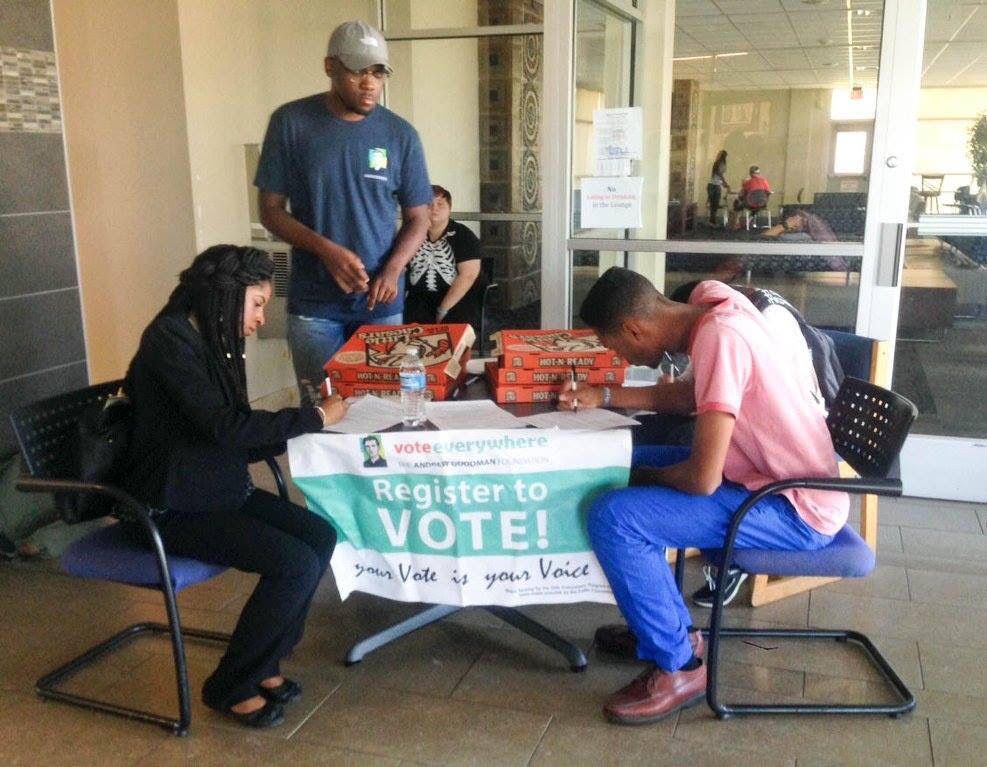
Tennessee Voting Rights Activists Fight New Registration Restrictions Facing South
Freedom summer voting drive
Freedom summer voting drive-Hattiesburg, then a town of about 30,000 people, was one of the epicenters of Freedom Summer—the ambitious, audacious drive to register black voters, teach black children about their history and their rights in makeshift Freedom Schools, and punch some holes in the southern regime of segregationBut, Cobb said, these suppressors, or rather, oppressors, haven't won yet During a Freedom Summer voting drive, activists could survey the places where obstacles to voting exist and work
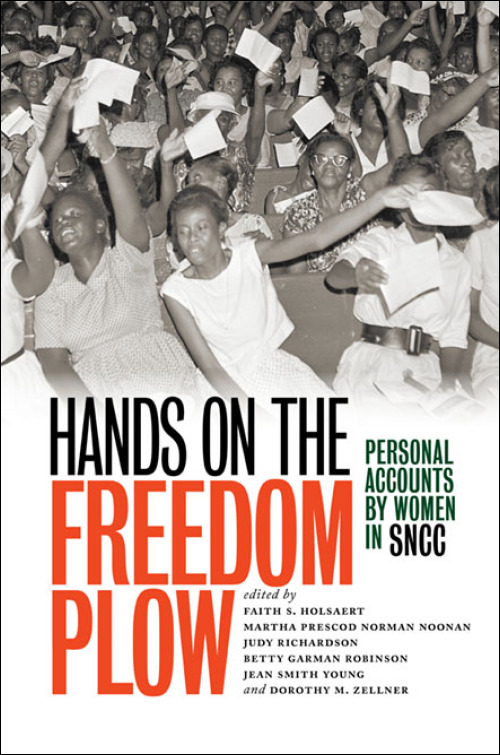


Freedom Summer 1964 Zinn Education Project
Voting Rights in 1964 is a clip from the film, Freedom SummerDirected by Stanley Nelson (Freedom Riders, Jonestown The Life and Death of Peoples Temple) anThe summer of 1964 forever changed the course of voting rights in America, driven in large part by the leadership of Hamer, the daughter of sharecroppers, who was fired from her job of picking cotton for trying to register to vote, and Robert Moses, a Student Nonviolent Coordinating Committee (SNCC) organizer turned national activistFreedom Summer focused on fighting Black voter suppression in Mississippi, the epicenter of rampant racist attempts to stop Black people from voting—but the ripple effects stretched far beyond the Mississippi Delta Freedom Summer honors our rich legacy in Black power building through voter registration and political education
The murders of Chaney, Goodman, and Schwerner, also known as the Freedom Summer murders, the Mississippi civil rights workers' murders or the Mississippi Burning murders, refers to three activists who were abducted and murdered in Neshoba County, Mississippi, in June 1964 during the Civil Rights MovementThe victims were James Chaney from Meridian, Mississippi, and Andrew Goodman and MichaelThe Civil Rights Act of 1964 and the Voting Rights Act of 1965 passed Congress in part because lawmakers' constituents had been educated about these issues during Freedom Summer Mississippi's black residents gained organizing skills and political experienceToday marks the 52 nd anniversary of the Mississippi Summer Project During the summer of 1964, a coalition of civil rights organizations, led by the Student Nonviolent Coordinating Committee (SNCC) and Congress on Racial Equality (CORE), organized a movement geared towards engaging African Americans in civic engagement in rural Mississippi The Mississippi Summer Project of 1964, later known as "Freedom Summer," led the black community to voter registration, participation, and education
Voting Rights in 1964 is a clip from the film, Freedom SummerDirected by Stanley Nelson (Freedom Riders, Jonestown The Life and Death of Peoples Temple) anDispatches from Freedom Summer Keep on Pushing Fifty years after Freedom Summer, two Mississippi sisters press the fight for voting rights by Brentin Mock September 18, 14Bruce Watson, Author "Freedom Summer" The Voting Rights Act of 1965 actually got its birth during Freedom Summer It was signed in August of 1965, and one of the most important things it did was



Freedom Summer The Revolutionary Movement To Register Voters Huffpost



Freedom Summer Definition Murders Results History
Freedom Summer Summary In 1964, activists coordinated "Freedom Summer," a drive to enlist whatever number African American citizens as could reasonably be expected in Mississippi to get ready for the official political decision that year By and by, the significant associations framed an alliance The SNCC, CORE, SCLC, and NAACP met up to make the task a triumphJews made up half of the young people who participated in the Mississippi Freedom Summer in 1964 Leaders of the Reform Movement were arrested with Rev Dr Martin Luther King, Jr in St Augustine, Florida, in 1964 after a challenge to racial segregation in public accommodationsThis attempt to frighten others from joining the campaign failed and by late 1964 over 70,000 students had taken part in Freedom Summer The following year, President Lyndon Baines Johnson attempted to persuade Congress to pass his Voting Rights Act This proposed legislation removed the right of states to impose restrictions on who could vote in elections



Freedom Summer 1964 Voter Registration Drive In Mississippi With Images Freedom Summer African American History Civil Rights


Www Uww Edu Documents Youngauditorium 14 15 season Lib A Freedom Summer Sourcebook Pdf
Our efforts echoed the 1964 Freedom Summer voting rights drive that precipitated the passage of the 1965 Voting Rights Act This month, we launched Freedom Fall to continue in the Black radicalPalo Alto, California April 24, 1964 Robert P Moses Bob Moses was a softspoken civil rights organizer from Harlem who worked some of the most dangerous terrain in the Jim Crow South the vast plantation territory of the Mississippi Delta Moses was a central figure in organizing the 1964 Freedom Summer campaign, which recruited hundreds of student volunteers from northern colleges to conduct an ambitious black voter registration drive in MississippiTheir impact was clear In just 10 weeks, Freedom Summer resulted in about 17,000 black Mississippians attempting to register to vote The effort brought national attention to the systematic disenfranchisement of black voters and helped to pave the way for the Voting Rights Act of 1965 'A long road down to Mississippi'
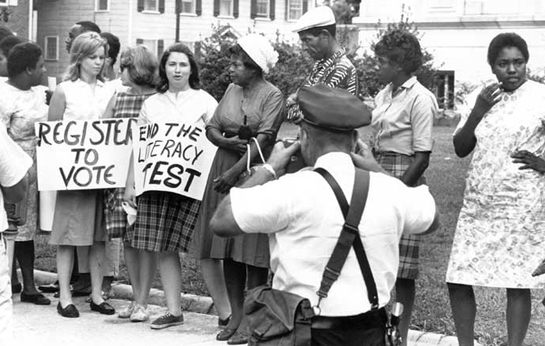


A Half Century Battle For Voting Rights Consortiumnews
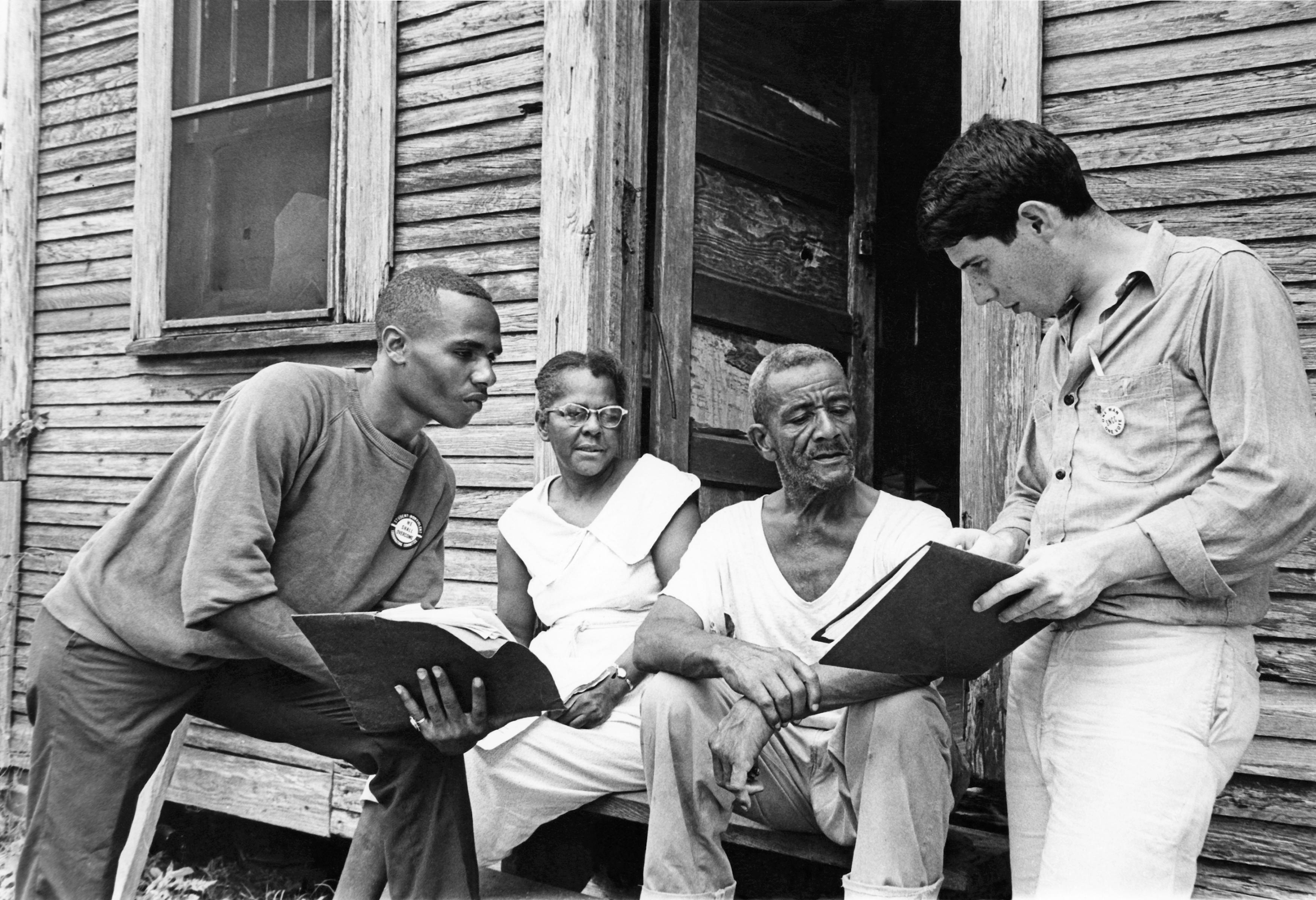


When Freedom Summer Came To Town
Today we honor the 1964 Mississippi Freedom Summer project "In 1964, civil rights organizations including the Congress on Racial Equality (CORE) and Student NonViolent Coordinating Committee (SNCC) organized a voter registration drive, known as the Mississippi Summer Project, or Freedom Summer, aimed at dramatically increasing voter registration in MississippiThe wellpublicized voter registration drives brought national attention to the subject of black disenfranchisement, and this eventually led to the 1965 Voting Rights Act, federal legislation that among other things outlawed the tactics Southern states had used to prevent blacks from voting Freedom Summer also instilled among African Americans a new consciousness and a new confidence in political actionIn an effort to tackle voter suppression, the Council of Federated Organizations, also known as COFO, organized the Freedom Summer Project COFO was a coalition of the state's four major civil rights organizations SNCC, the Congress of Racial Equality (CORE), the National Association for the Advancement of Colored People (NAACP), and the Southern Christian Leadership Conference (SCLC)
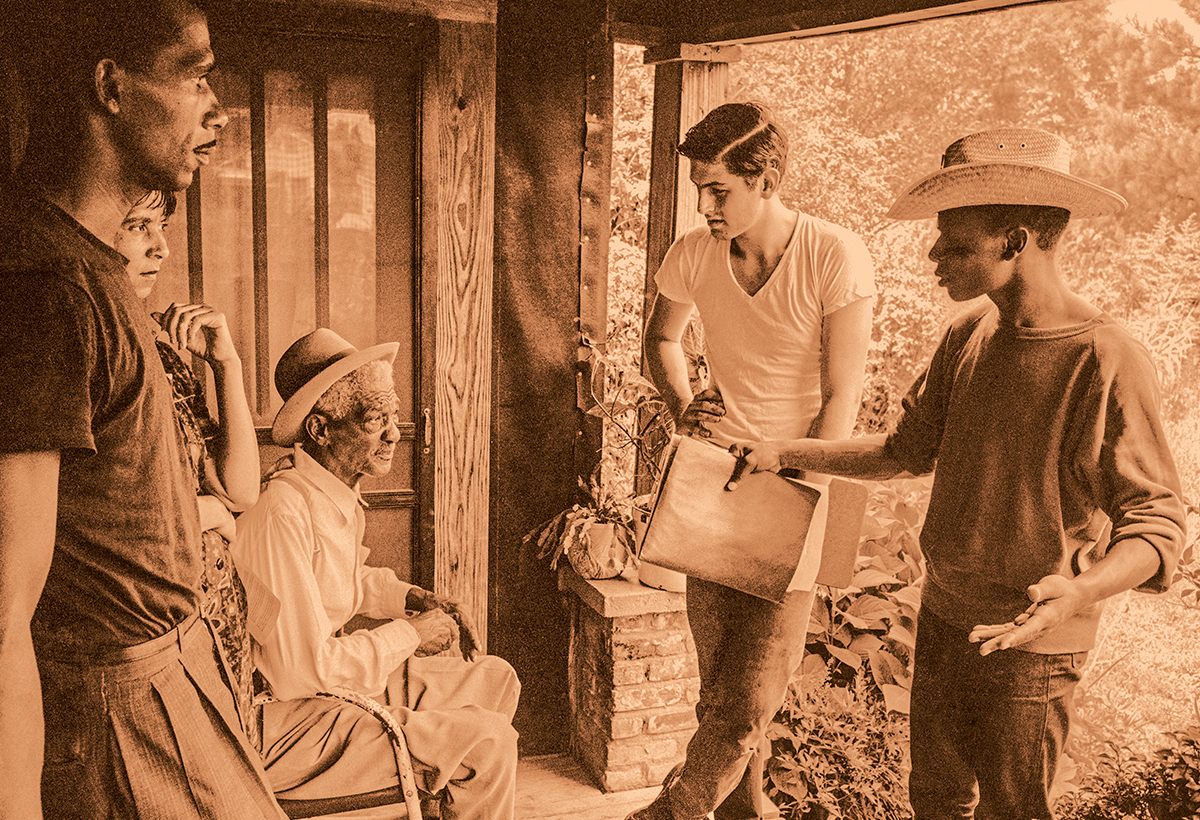


Freedom To Vote
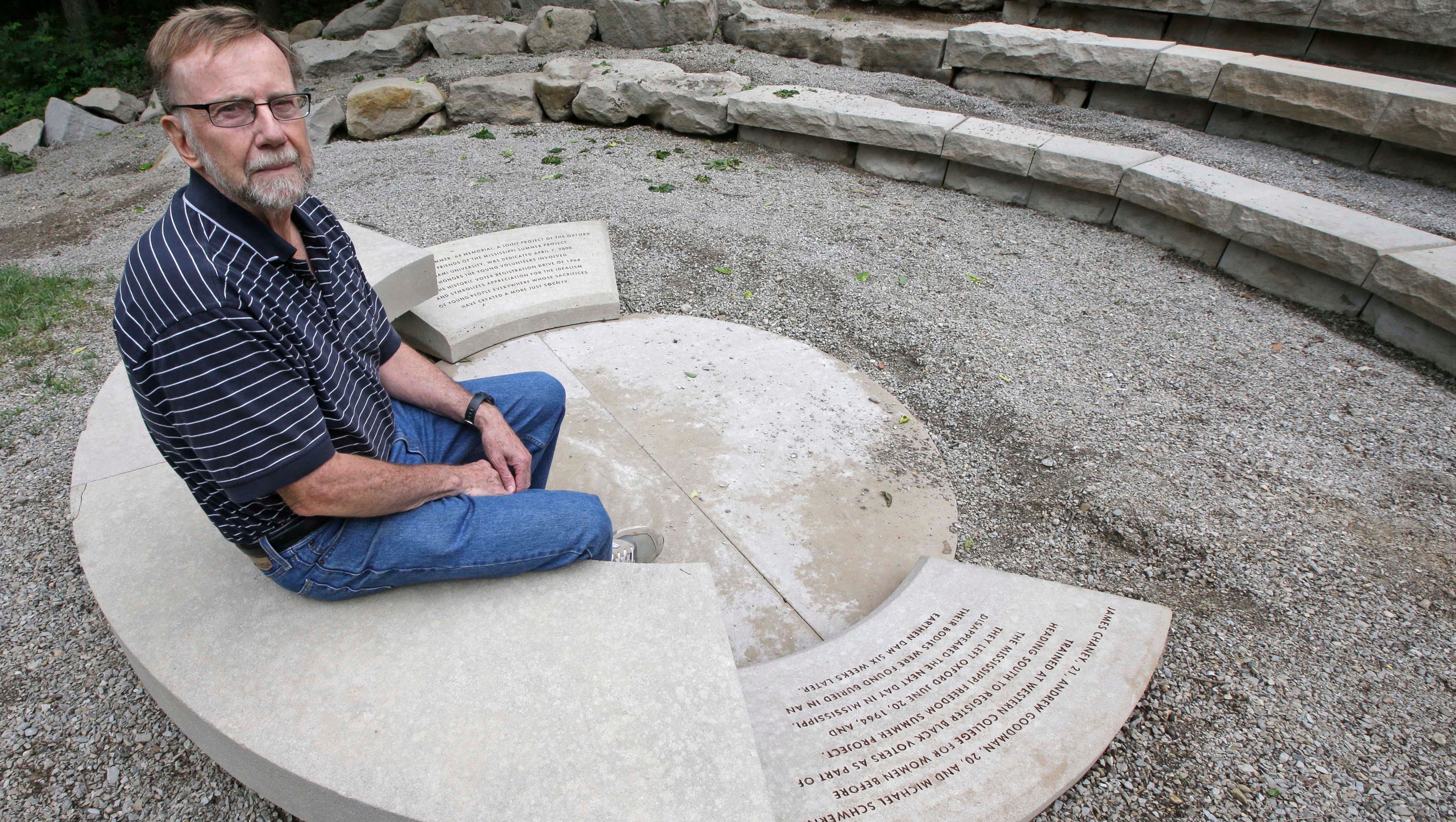


Roots Of Freedom Summer Planted At Ohio College
The famous 1964 voter registration drive, also known as the Mississippi Summer Project, was a mobilized effort to encourage Black folks to exercise their right under the worst of conditionsA career dedicated to protecting and expanding voting rights makes Carolyn JeffersonJenkins a natural choice for the Freedom Summer of '64 Award from Miami University Created in 17, the award honors leaders who strive to advance civil rights and social justice in AmericaBruce Watson, Author "Freedom Summer" The Voting Rights Act of 1965 actually got its birth during Freedom Summer It was signed in August of 1965, and one of the most important things it did was



When The Right To Vote Wasn T A Right


Www Uww Edu Documents Youngauditorium 14 15 season Lib A Freedom Summer Sourcebook Pdf
Former sharecropper Fannie Lou Hamer's Congressional testimony is so powerful that President Johnson calls an impromptu press conference to get her off the aWhat's in this Portal The portal for Black Americans and the Vote highlights many of the National Archives holdings that relate to the long struggle for equality in voting rights Through this portal, users can explore the historic events, individuals, organizations, and the Federal government's actions to both limit and expand access to the vote The National Archives holds records relating to mass voting actions such as Freedom Summer, as well as records about the organizations andOne year after Freedom Summer, President Lyndon B Johnson voted into law the Voting Rights Act of 1965, which gave the federal government the power to oversee voter registration and elections in counties where discrimination had historically occurred An essay by the Wisconsin Historical Society describes the intent of the Freedom Summer project



Immediate Impact Of The Civil Rights Act The Civil Rights Act Of 1964 A Long Struggle For Freedom Exhibitions Library Of Congress



Mississippi At Atlantic City Civil Rights Teaching
Freedom Summer, also known as the Freedom Summer Project or the Mississippi Summer Project, was a volunteer campaign in the United States launched in June 1964 to attempt to register as many AfricanAmerican voters as possible in Mississippi Blacks had been restricted from voting since the turn of the century due to barriers to voter registration and other laws The project also set up dozens of Freedom Schools, Freedom Houses, and community centers in small towns throughout Mississippi to aidDuring the Freedom Summer of 1964, northern white college students traveled to Mississippi to spearhead a voting drive for AfricanAmericans Read about the Freedom Summer and the violenceFreedom Summer In the summer of 1964 the Council of Federated Organizations (COFO) began organizing a movement regarding voting rights COFO was a group of Mississippi branches of the four major civil rights organizations the Student Nonviolent Coordinating Committee (SNCC), Congress of Racial Equality (CORE), National Association for the Advancement of Colored People (NAACP), and the Southern Christian Leadership Conference (SCLC)



Officials Close Investigation Into 1964 Mississippi Burning Killings The Two Way Npr


Freedom Summer African American Civil Rights Movement
A commemoration of the 50th anniversary of Freedom Summer, when hundreds of volunteers came to Mississippi in 1964 launching a massive voter registration drive for African AmericansThe famous 1964 voter registration drive, also known as the Mississippi Summer Project, was a mobilized effort to encourage Black folks to exercise their right under the worst of conditionsThe project, known as "Freedom Summer," recruited over 1,000 outofstate volunteers to work with thousands of African American Mississippians to register voters over the summer of 1964 They were met with violence from police, white supremacy organizations, and private citizens
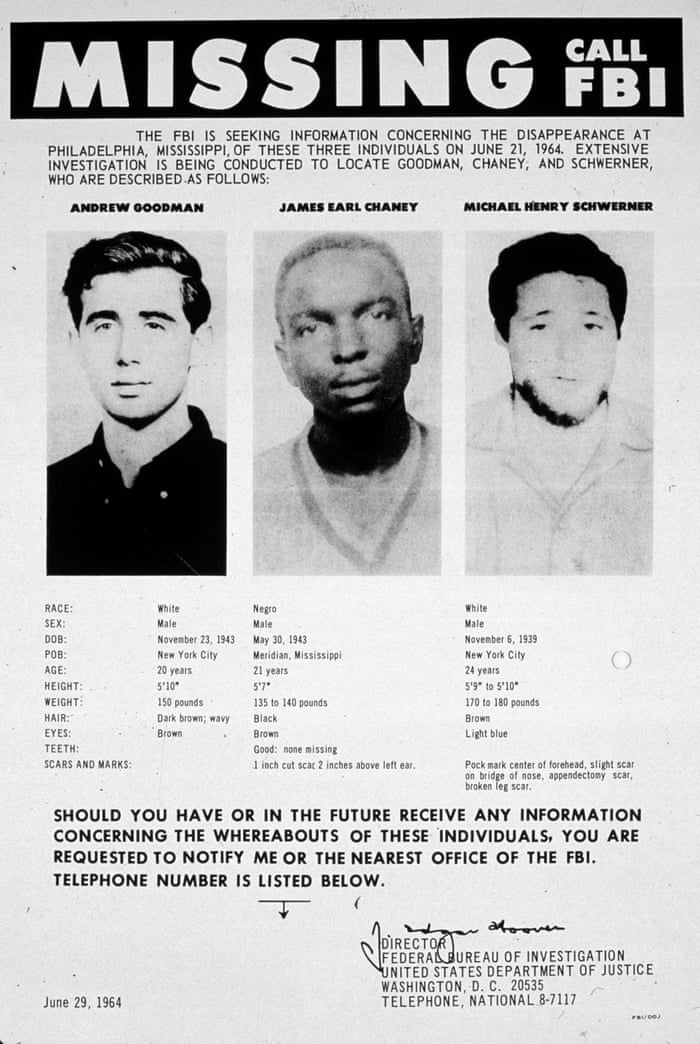


How Civil Rights Activists Risked Their Lives To Change America In Freedom Summer History Books The Guardian



Freedom Summer 50 Years Later
In 1964, the SNCCled Council of Federated Organizations (COFO) sponsored Freedom Summer, a massive voter education and registration drive in Mississippi This project put enormous pressure on President Johnson to move toward what would later become the Civil Rights Act of 1964 and the Voting Rights Act of 1965In 1964, inspired by the growing spirit of change, hundreds of college students from across the country signed up to travel to Mississippi for a project that became known as Freedom Summer One key goal to register as many of the state's Black citizens as possible to vote Even for volunteers, the task was dangerousValuing the Vote is back!
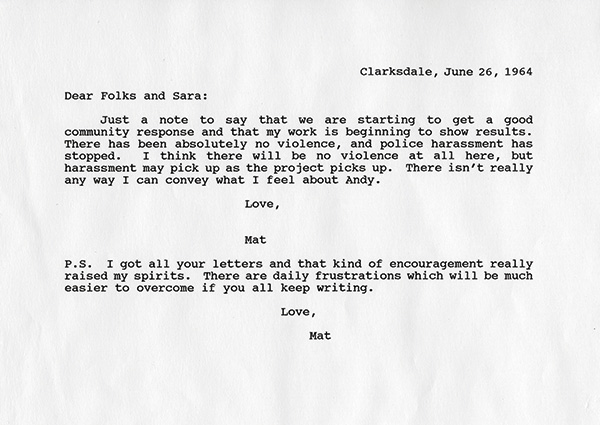


Rochester Review University Of Rochester


Aquila Usm Edu Cgi Viewcontent Cgi Article 1297 Context Honors Theses
Freedom Summer was organized by SNCC, the Student Nonviolent Coordinating Committee, which recruited 700 college students, mostly white students from the North, to come down to Mississippi and helpThen SNCC workers called it "the Summer Project;" we now know it as Freedom Summer 1964 Freedom Summer's fundamental goal was to help African Americans gain their voting rights The use of Northern volunteers would "focus national attention on Mississippi as a means of forcing federal intervention in the state" (McAdam, 39)*Freedom Summer 1964several thousand volunteers go ot the south to run a voter registration driveJune 1964 James Chaney a CORE (Congress of Racial Equality) volunteer, Andrew Goodman a NY student, and Michael Schwerner a NY social worker all disappearthe bodies are found several weeks later – Goodman and Schwerner were each shot once and Chaney was beaten and shot several timesFBI investigation proves that the KKK was responsiblethe film Mississippi Burning tells this story *Voting
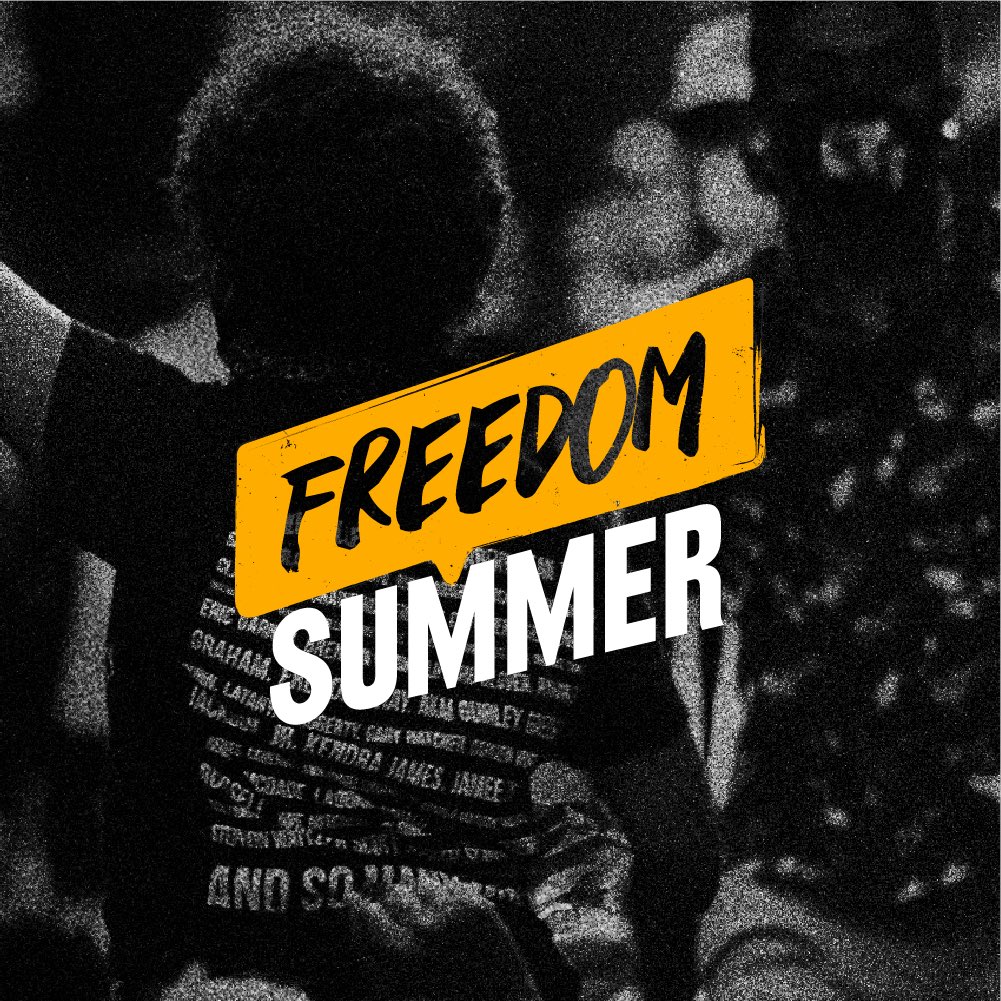


Movement 4 Black Lives Today We Re Rolling Out Our Freedom Summer Organizing Campaign An Echo Of The 1964 Freedom Summer Voting Rights Drive That Precipitated The Passage Of The
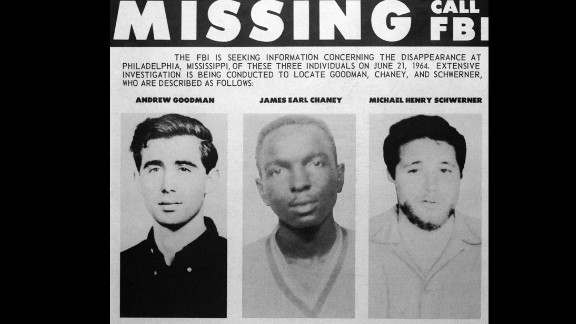


Retracing A Summer Of Terror And Freedom Cnn
But, Cobb said, these suppressors, or rather, oppressors, haven't won yet During a Freedom Summer voting drive, activists could survey the places where obstacles to voting exist and workThe summer of 1964 forever changed the course of voting rights in America, driven in large part by the leadership of Hamer, the daughter of sharecroppers, who was fired from her job of pickingOur focus this month is the Voting Rights Act of 1965 and its lasting impacts Please join us for our first program in this part of the series on February 12 at 1 PM Central (via Facebook Live) where we will hear from Joanne Blackmon Bland and Lynda Blackmon Lowery, who were the youngest participants in the marches in Alabama in March of 1965, including "Bloody Sunday"



Icons Of 1960s Civil Rights Movement Voice Cautious Optimism Voice Of America English



Riding Freedom 10 Milestones In U S Civil Rights History Britannica
Highlighting the need for federal voting rights legislation, these efforts created political momentum for the Voting Rights Act of 1965 In an effort to address Mississippi's separate and unequal public education system, the summer project established 41 Freedom Schools attended by more than 3,000 young black students throughout the stateOne year after Freedom Summer, President Lyndon B Johnson voted into law the Voting Rights Act of 1965, which gave the federal government the power to oversee voter registration and elections in counties where discrimination had historically occurred An essay by the Wisconsin Historical Society describes the intent of the Freedom Summer projectThis attempt to frighten others from joining the campaign failed and by late 1964 over 70,000 students had taken part in Freedom Summer The following year, President Lyndon Baines Johnson attempted to persuade Congress to pass his Voting Rights Act This proposed legislation removed the right of states to impose restrictions on who could vote in elections



A New Class Of Voting Rights Activists Picks Up The Mantle In Mississippi The New York Times
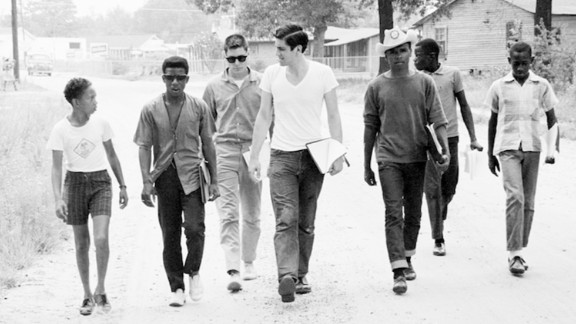


Retracing A Summer Of Terror And Freedom Cnn
The Civil Rights Act of 1964 and the Voting Rights Act of 1965 passed Congress in part because lawmakers' constituents had been educated about these issues during Freedom Summer Mississippi's black residents gained organizing skills and political experienceMississippi Freedom Summer was a response to statewide racism in Mississippi toward black residents who wanted to vote Even attempting to vote could severely impact a person's life since many lost their jobs and were threatened and physically abusedFreedom Summer at 50 Amid commemorations, Southern activists aim to rekindle the voting rights movement Cole Stangler June 25, 14
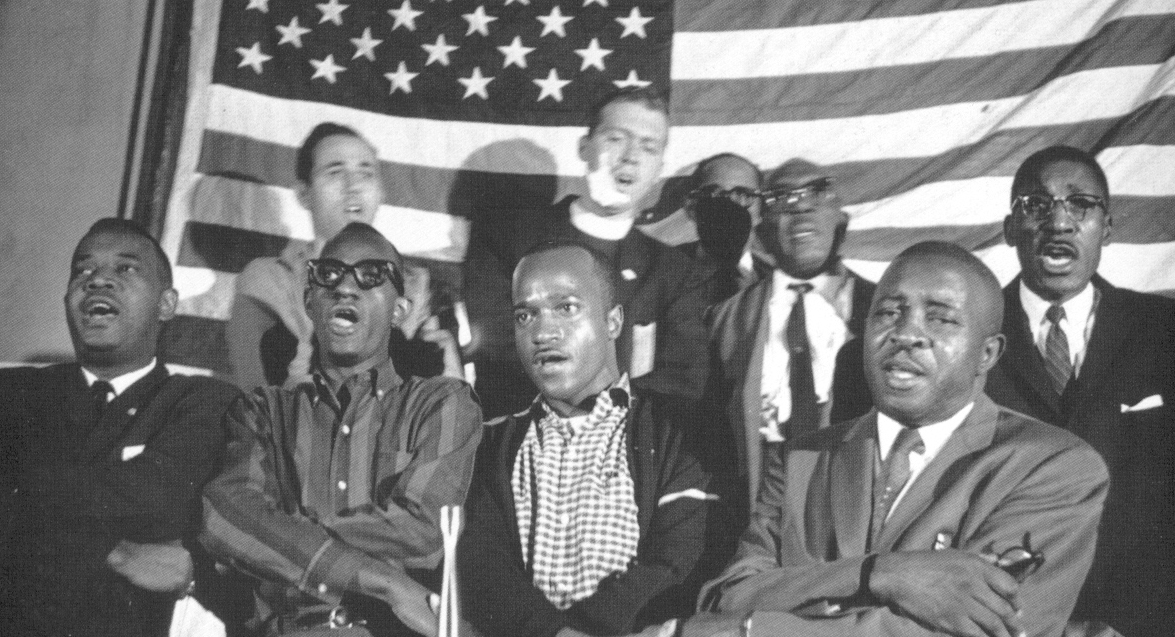


Mississippi Freedom Vote Sncc Digital Gateway Sncc Digital Gateway



Overview Of The 1964 Freedom Summer Wisconsin Historical Society
Freedom Summer is one of the Ten Days that Unexpectedly Changed America It tells the story of the Mississippi Voter Registration Drive in 1964, an attempt to register as many AfricanAmerican voters as possible Over 700 mostly white volunteers joined the project, coming from all over the countryWhat's in this Portal The portal for Black Americans and the Vote highlights many of the National Archives holdings that relate to the long struggle for equality in voting rights Through this portal, users can explore the historic events, individuals, organizations, and the Federal government's actions to both limit and expand access to the vote The National Archives holds records relating to mass voting actions such as Freedom Summer, as well as records about the organizations and



Veterans Of The Civil Rights Movement Images Of A Peoples Movement Freedom Day Freedom Summer Mississippi



Amazon Com Freedom Summer Anthony Harris Bob Moses Bruce Watson Charles Mclaurin
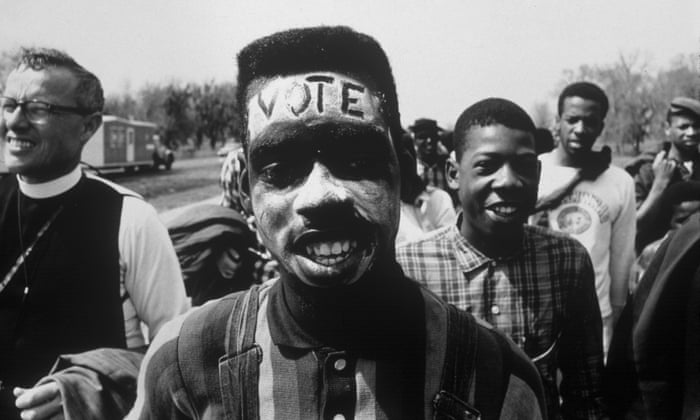


How Civil Rights Activists Risked Their Lives To Change America In Freedom Summer History Books The Guardian



Dr K Childs Day 11 Fannie Lou Hamer Was The Leader Of The 1964 Mississippi Freedom Summer Campaign For Voting Rights What Are You Passionate About That You Would



February 15 Ella Baker 1938 1953 The Voting Rights Alliance
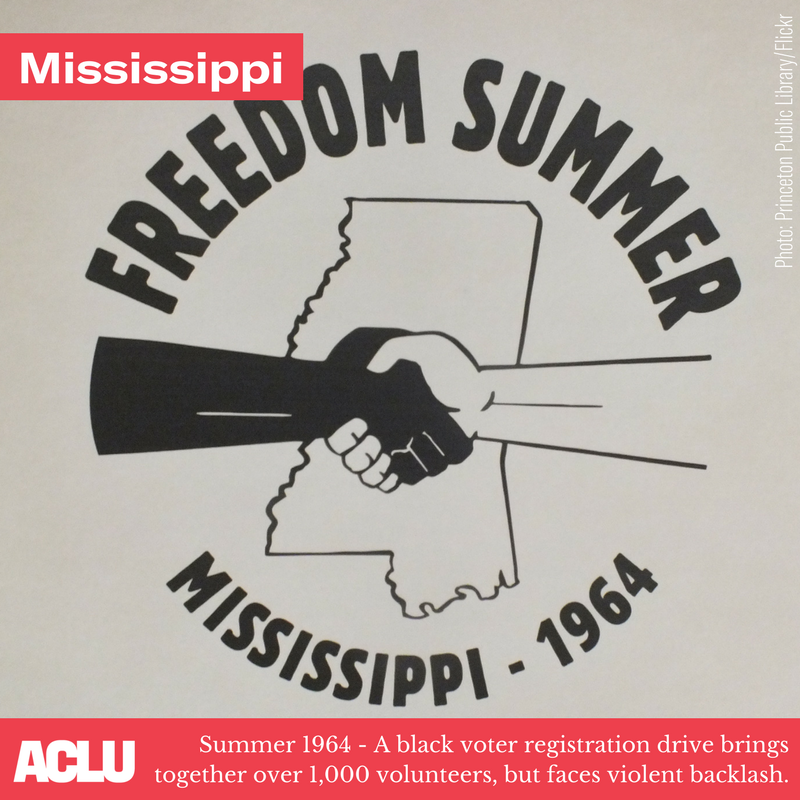


Aclu Archives Selma To Montgomery Marches Aclu Of Alabama


Http Amhistory Si Edu Docs Freedom Summer Close Reading Pdf
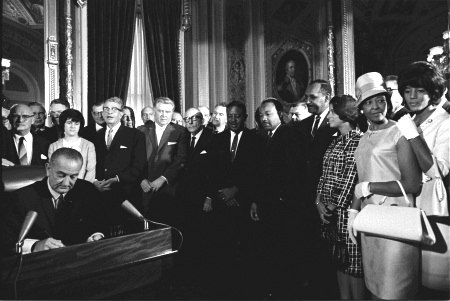


Constitutional Rights Foundation


Robert Moses Archives Bob Moses At Freedom Summer Training
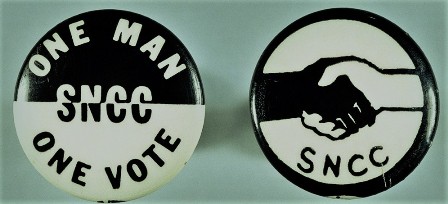


Sncc Project A Year By Year History 1960 1970 Mapping American Social Movements


Voter Registration And The Civil Rights Movement Your Vote Your Voice The Continuous Struggle
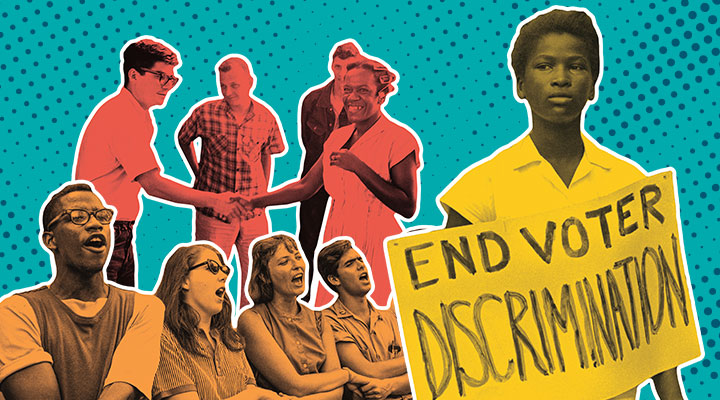


Freedom To Vote



Freedom Summer Definition Murders Results History



Watch Freedom Summer American Experience Official Site Pbs


Www Lockhaven Com News Local News 06 Fannie Lou Hamers Fight To Vote



A New Class Of Voting Rights Activists Picks Up The Mantle In Mississippi The New York Times



Freedom Summer Wikipedia


Freedom Summer 1964 Freedom Summer Trail
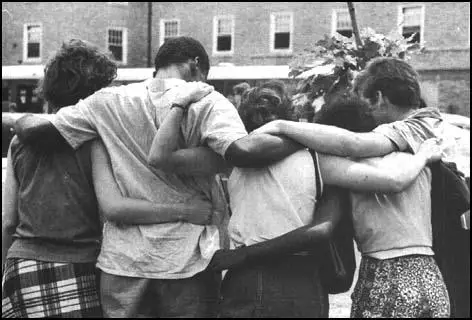


Freedom Summer


Freedom Summer 1964 Freedom Summer Trail
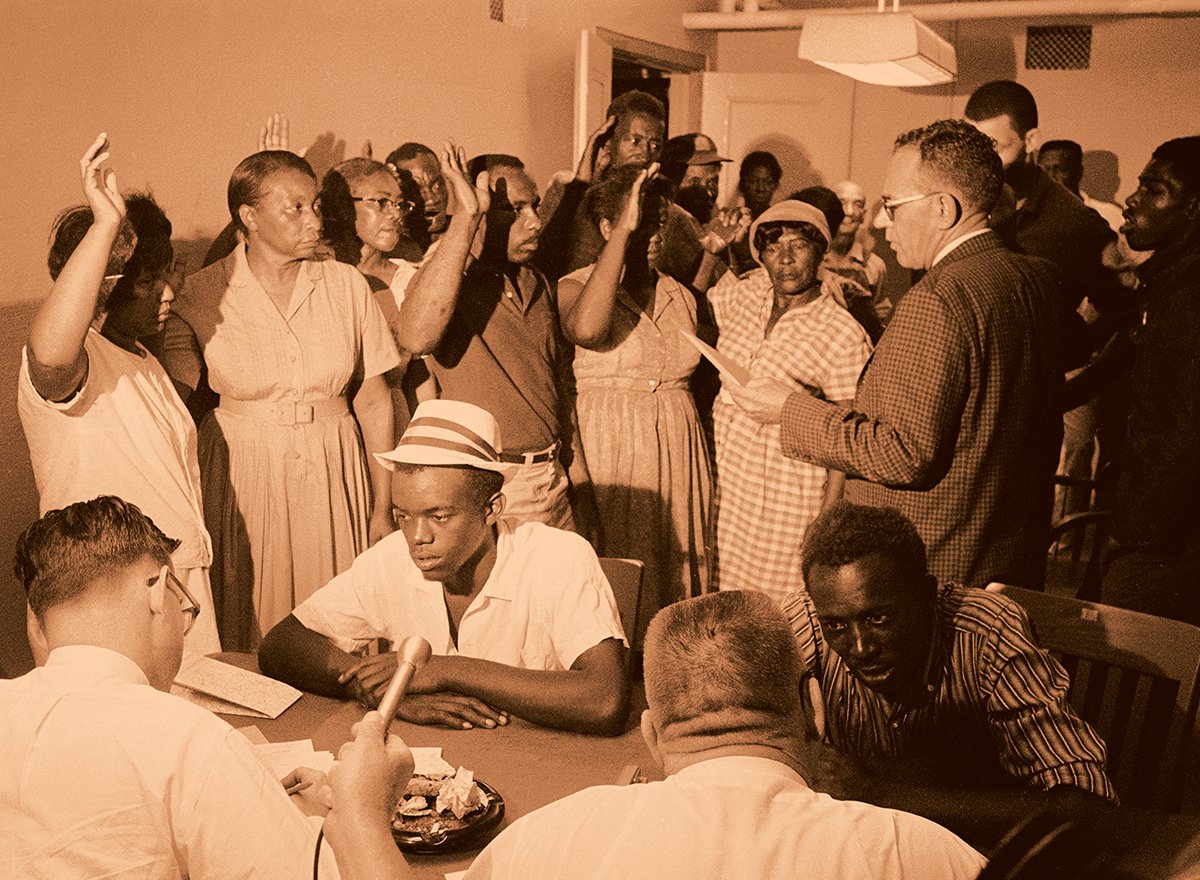


Freedom To Vote



Freedom Summer Definition Murders Results History
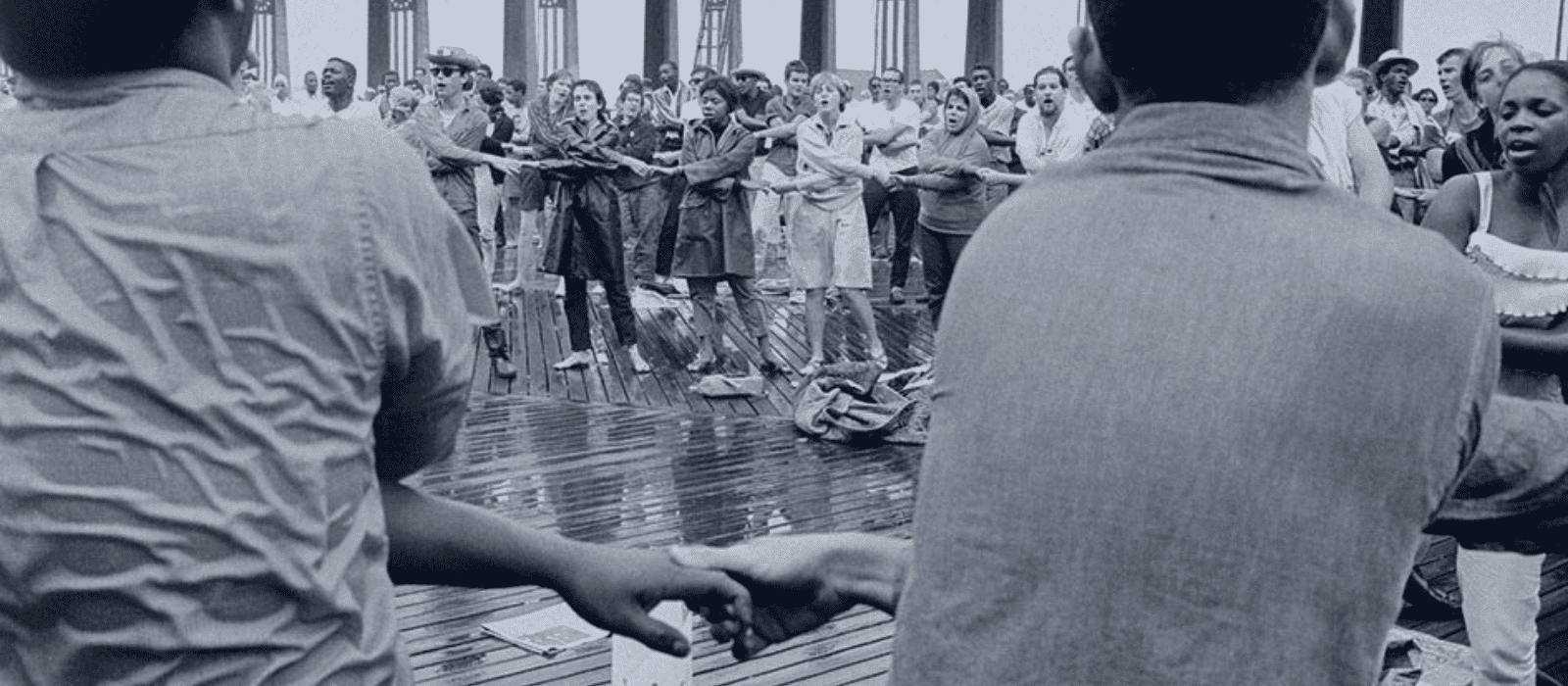


Partner Organizations Voteriders


053 Freedom Summer 1964 Timeline United States Wolfgram Memorial Library Digital Collections
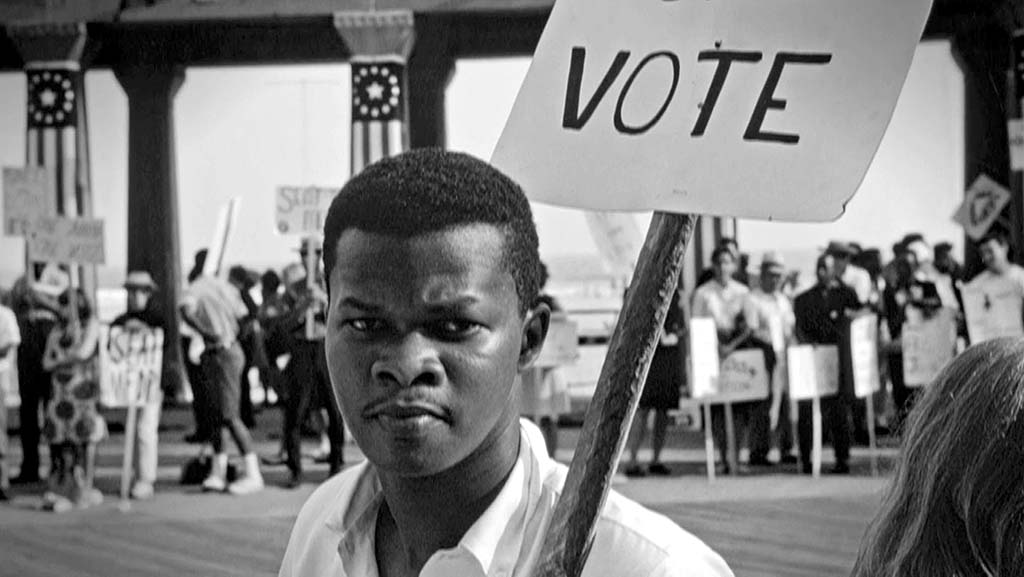


Freedom Summer 1964



Mississippi Burning Fbi



Mississippi Burning Fbi



The Civil Rights Movement An Introduction Article Khan Academy



Freedom Summer Of 1964 Campaign Summary Study Com



Remembering Freedom Summer The Civil Rights Effort That Changed America 50 Years Ago Pbs Newshour



Civil Rights Movement Voting Rights In America Two Centuries Of Struggle
:focal(2206x851:2207x852)/https://public-media.si-cdn.com/filer/89/2c/892c62a7-3942-4b52-9059-10da8442a98c/gettyimages-515450184.jpg)


Who Was Fannie Lou Hamer History Smithsonian Magazine



Ella Josephine Baker Vrablackhistory The Voting Rights Alliance


Www Geneseo Edu Sites Default Files Users User1193 Dave dennis 2c speaker for martin luther king day commemoration 2c suny geneseo Pdf



Fannie Lou Hamer Wikipedia



Freedom Summer 1964 Voter Registration Drive In Mississippi Freedom Summer African American History Black History



History Of The U S Voting Rights Act
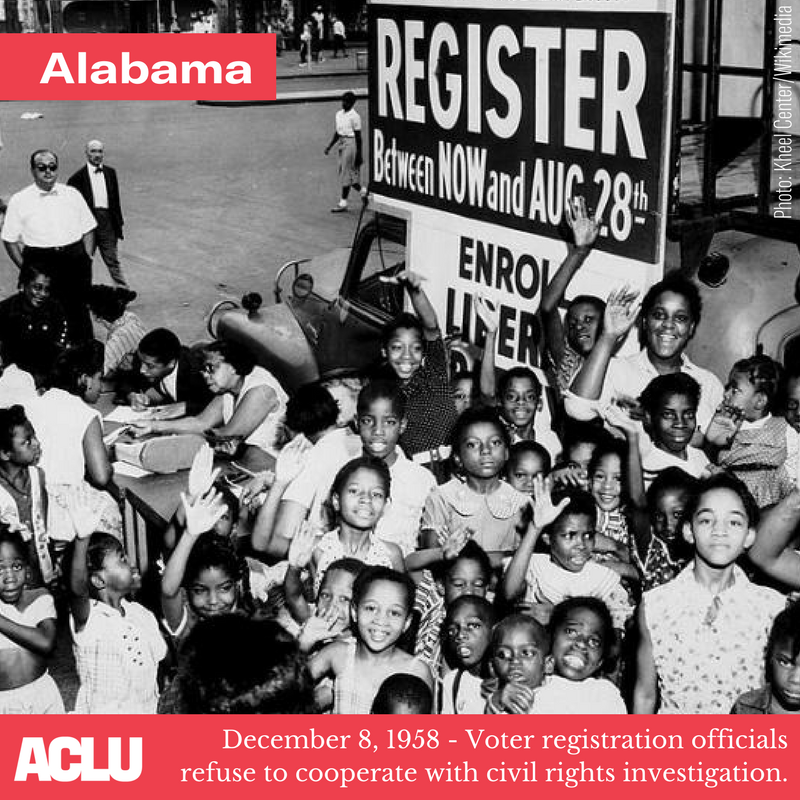


Aclu Archives Selma To Montgomery Marches Aclu Of Alabama
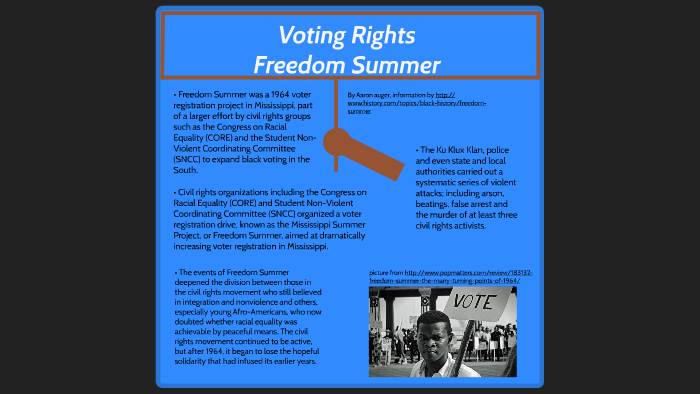


Freedom Summer Was A 1964 Voter Registration Project In Mi By Jasper Colonbrown



Freedom Rides History Facts Significance Britannica


Www Visithburg Org Media 1361 Freedom Summer Brochure Hburg Pdf



Amazon Com The Freedom Summer Murders Ebook Mitchell Don Kindle Store
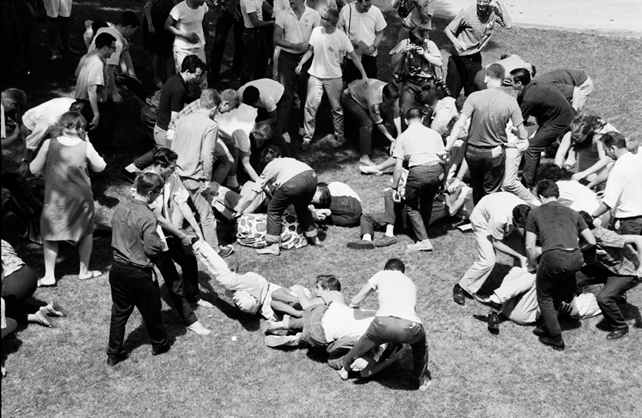


Celebrating Freedom Programs And Resources Diversity And Inclusion Miami University
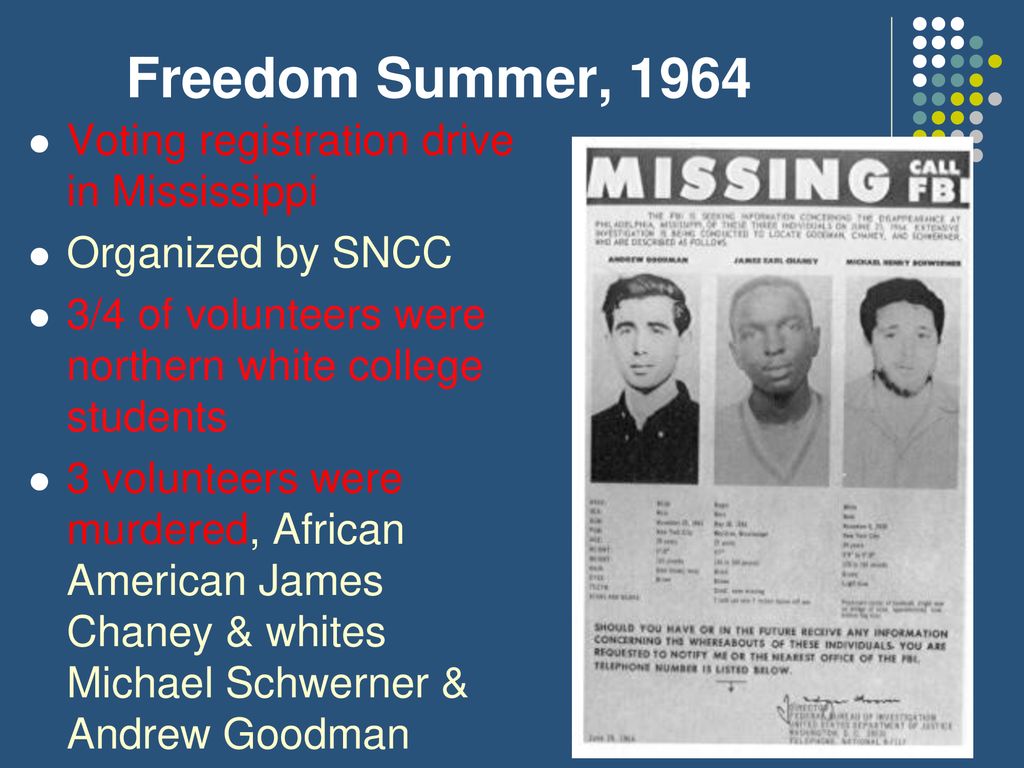


Fighting For Voting Rights Ppt Download



Celebrating Freedom Programs And Resources Diversity And Inclusion Miami University



The Civil Rights Era Naacp A Century In The Fight For Freedom Exhibitions Library Of Congress



Voter Registration Visit Meridian
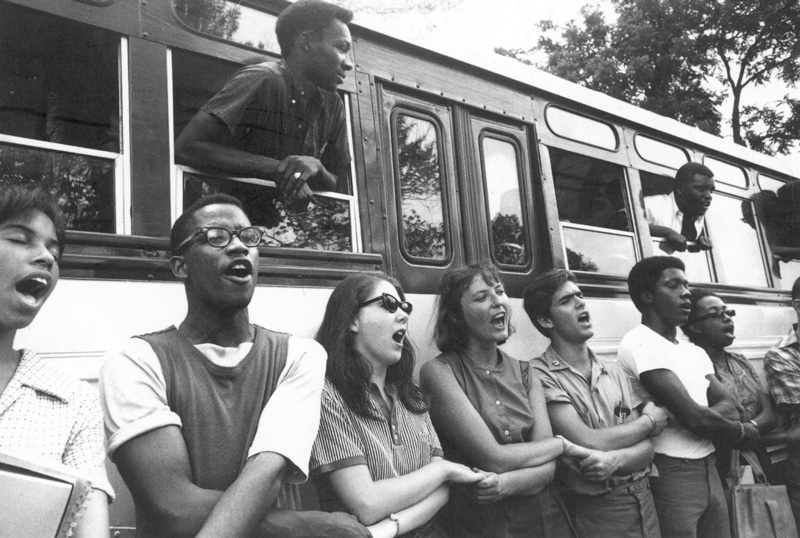


When Freedom Summer Came To Town
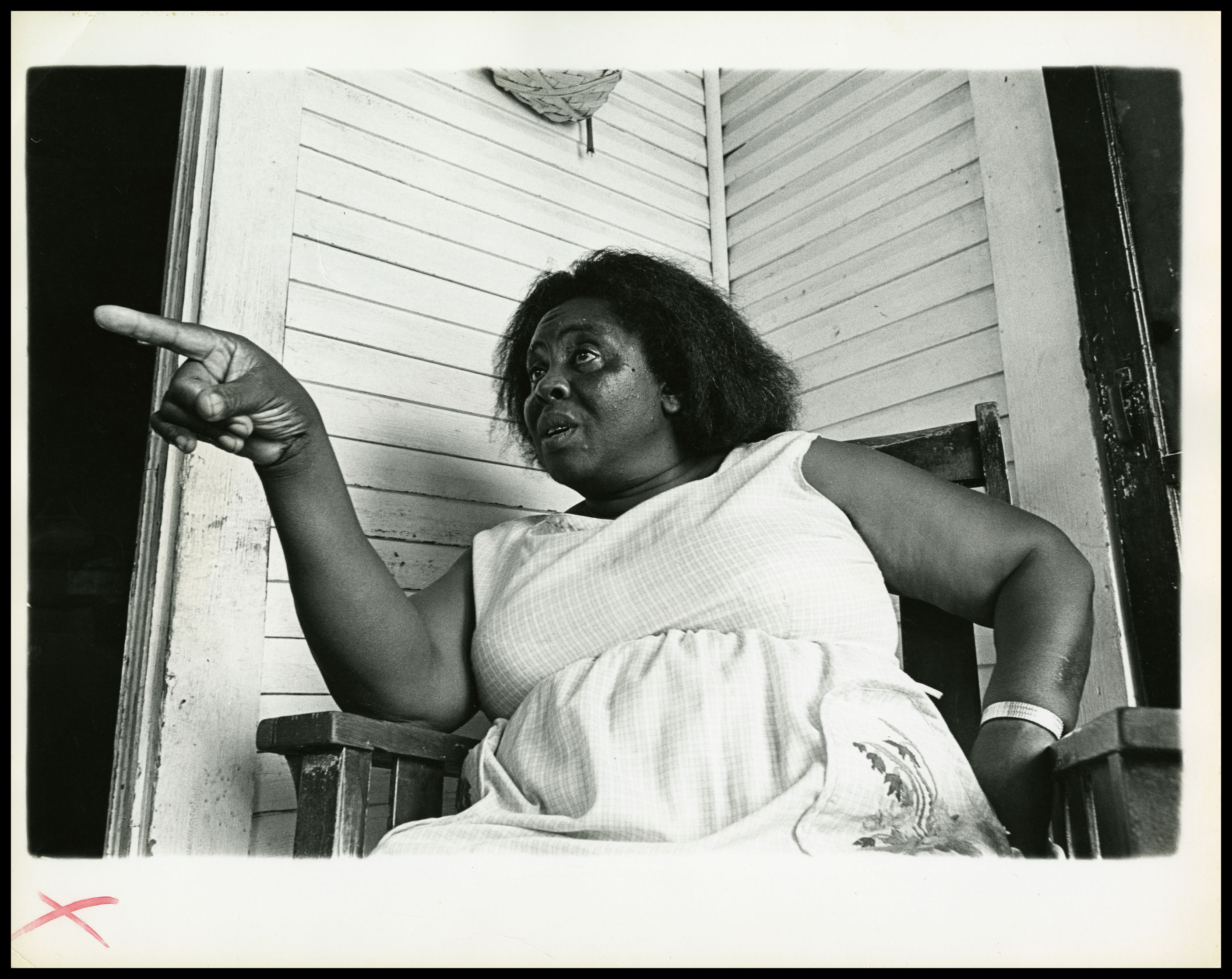


Fannie Lou Hamer Sncc Digital Gateway Sncc Digital Gateway



Freedom Summer Definition Murders Results History
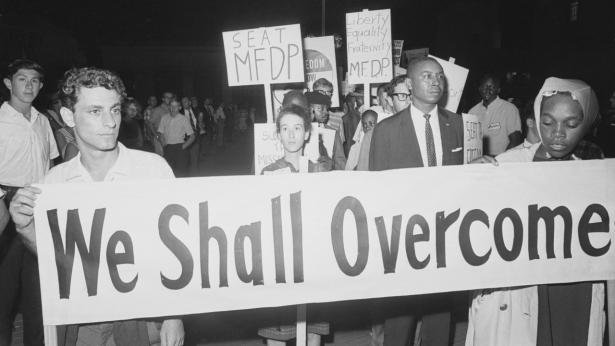


The Freedom Summer Of 1964 Launched A Voting Rights Revolution Portside



Mississippi Freedom Summer The Right To Vote And Its Impact On The Civil Rights Movement Ppt Download



Freedom Summer 1964 Zinn Education Project



Murder In Mississippi American Experience Official Site Pbs



The Price Of Freedom Summer 3 Voter Registration Workers Killed In Neshoba Mississippi 1964 Youtube



Voter Suppression Is Voter Suppression



The Voting Rights Act Hangs By A Thread The Atlantic


Voter Registration And The Civil Rights Movement Your Vote Your Voice The Continuous Struggle



Wisconsin Historical Society To Host Civil Rights Film Series



Freedom Summer The 1964 Struggle For Civil Rights In Mississippi Rubin Susan Goldman Amazon Com Books



The Freedom Summer Of 1964 Baltimore Jewish Times



History Of The U S Voting Rights Act



Freedom Summer Wikipedia



Cofo Mississippi Freedom Summer Flyer Queens College Civil Rights Archives
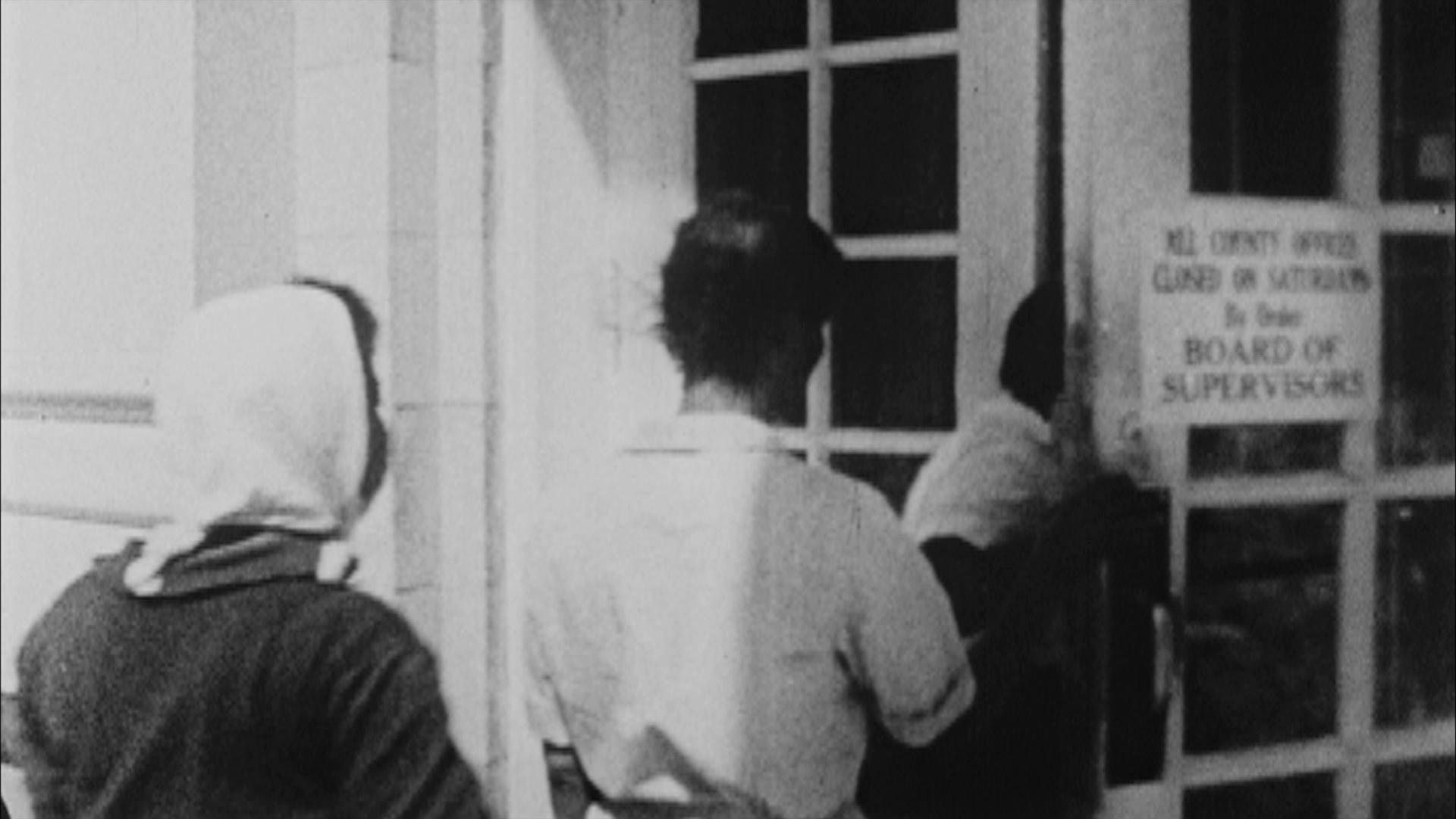


Freedom Summer Mississippi Blocks Voter Registration Pbs Learningmedia



Tennessee Voting Rights Activists Fight New Registration Restrictions Facing South



Roots Of Freedom Summer Planted At Ohio College



Retracing Freedom Summer In Mississippi Npr



Freedom Summer Was The Ultimate Protest Summer It S Time For Another One The Activist History Review



1964 The Fight For A Right Kpbs


Robert P Moses Speech On Freedom Summer At Stanford University



P 1 Freedom Summer Digital Collection Wisconsin Historical Society Online Collections



Freedom Come Sunday Jazz Trouble Hallelujah
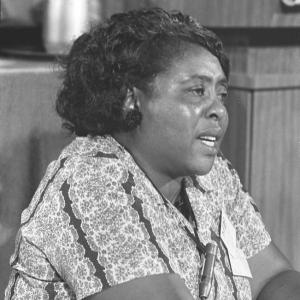


Fannie Lou Hamer National Women S History Museum


コメント
コメントを投稿